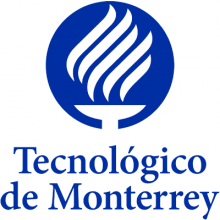As a growing number of countries around the world elect populist leaders, more and more universities are having to learn how to respond to them.
And while populism has typically been associated with the rise of right-wing rabble-rousers such as Donald Trump, in Mexico it has been harnessed by a left-wing president, Andres Manuel López Obrador, whose promises to fight corruption and increase security across the country have been welcomed by many.
A speech by the Mexican president – known as Amlo – at the opening of last month’s International Conference on Educational Innovation (CIIE) outlined policy points that have been central to his presidential agenda: government austerity, improving the country’s distribution of wealth and prioritising the poor.
Salvador Alva, president of the Monterrey Institute of Technology, which hosts the CIIE, welcomed a rare visit from the president to a higher education institution. However, he said that the president should be doing more to improve social mobility in the country.
“For us it’s important that he focuses on short-term progress in Mexico – corruption, security – but other long-term problems are more important and that [includes] talent, because that means social mobility and better income for society.”
Professor Alva emphasised the importance of respecting the choice of the Mexican people, highlighting that, instead of taking to the streets, as citizens in Chile, Colombia and Ecuador have done, Mexicans had protested by electing a populist president.
“We need to support Obrador” because his election represents “the demands of the people. If we don’t, sooner or later the Chilean and Colombian situation is going to appear,” he said.
In his comments, Professor Alva perhaps reflected the position of many university leaders contending with the rise of populist leaders around the world, as institutions respond to short-term policy initiatives while continuing to try to make the case for longer-term reforms.
Mexico continues to have the highest wealth and income inequality within the Organisation for Economic Cooperation and Development. It also has the largest youth population – 46 per cent are between infancy and 26 years old.
Despite the president’s efforts to tackle inequality through increased access to education, including launching the Jóvenes Construyendo el Futuro (Youth Building the Future) scholarship programme for 300,000 disadvantaged young people, investment in higher education remains uncoordinated.
“In Latin America, with Chile as an exception, you need to make sure you have means to target your poverty investment in education, and in Mexico it’s not the case. There’s not a lot of transparency in how funds are allocated in higher education,” said Paulo Santiago, head of the policy advice and implementation division at the OECD.
During his speech at the CIIE, the president again offered scholarships as a solution to inequality of access, announcing a joint funding programme between the government and Tec de Monterrey “so that talented young people from poor families and disadvantaged backgrounds can study”.
Nevertheless, the new scholarships came as a surprise to Professor Alva, who said that institutional leaders had only briefly discussed with the president the need for a national merit-based scholarship scheme.
“After that, he announced that the government would give scholarships to smart poor people. That we discussed, but it was only an idea. And our idea was that it needs to go beyond Tec de Monterrey,” he said.
The president’s penchant for creating scholarships is one way of tackling inequality, but they address only the opportunity cost to get into higher education, said Mr Santiago. They should be combined with other initiatives such as funding institutions directly and improving the quality of education on offer, he said.
“What we observe in Mexico in particular is that when the most disadvantaged students manage to get into higher education, it tends to be in programmes where quality is lowest,” Mr Santiago said.
But public universities have been caught up in the president’s austerity measures, with funding for research and university personnel getting cut.
Mr López Obrador has also publicly criticised university entrance exams for stifling opportunities for all young people to study.
“If universities are not open to every student who wants to study, because we don’t have capacity, it is wrong because we should be open and free to anyone who wants to go,” said the rector of one public university who wanted to remain anonymous because of concerns about funding for their own institution. “He has these ideas that connect with people who have a son who couldn’t get into university, and they think the president is right.”
Another rector of a public institution, also wishing to remain anonymous for the same reason, said it was paradoxical that the people who went to university and their parents supported the president “when he’s against universities”.
“We are not in as bad a situation as Brazil with [Jair] Bolsonaro,” they said. “The thing is that we would have expected a left government to have serious engagement and incorporation of public universities into the debate and into the national project. We were expecting that, and it hasn’t happened.”
Register to continue
Why register?
- Registration is free and only takes a moment
- Once registered, you can read 3 articles a month
- Sign up for our newsletter
Subscribe
Or subscribe for unlimited access to:
- Unlimited access to news, views, insights & reviews
- Digital editions
- Digital access to THE’s university and college rankings analysis
Already registered or a current subscriber? Login










